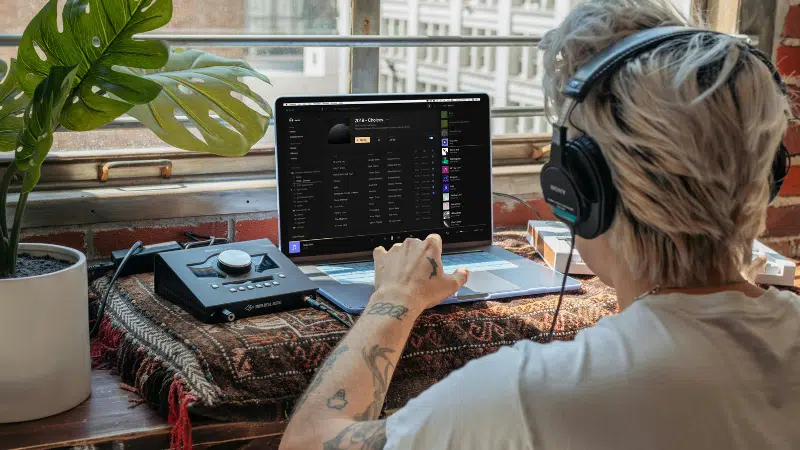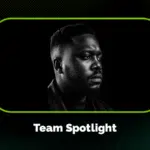Good SEO is what gets your music in front of fans looking for artists in your genre, the name of that song stuck in their head, or upcoming shows nearby. It’s an undeniably effective tool for growing your audience, especially for independent artists, and that’s why we’re breaking down everything you need to know to utilize it for yourself. ⚡️ From what it is and why it’s important to how to apply it to your own online strategy, let’s dive in…
SEO for Musicians: Why It Matters and How To Use It
What is SEO?
Search Engine Optimization is what helps content show up higher in search results on platforms like Google and YouTube, but also streaming services like Spotify, Apple Music, etc. For artists specifically, it’s not just about ranking, it’s about discoverability. Whether someone is searching for your lyrics, trying to remember the name of your latest release, or looking for new artists in a specific genre, good SEO is what helps your name appear in those moments.
Whenever you publish something online, like a track description, YouTube video, bio, or website, you’re giving search engines clues about who you are and what you do. So, the clearer you can make these clues, the easier it’ll be for listeners to find you.
Easy as that.
Getting Discovered on Streaming Platforms
Not sure where to begin? Start with what you already have. Your artist bio, track descriptions, and YouTube captions are all great places to work in keywords to boost your visibility. Not just on Google, but also within platforms like Spotify, Apple Music, and YouTube.
📚 Artist Bios: These show up everywhere: your website, streaming profiles (Spotify for Artists, Apple Music for Artists), press kits, and social platforms like Instagram or TikTok. (And with public IG posts starting to appear in Google results, it’s one more reason to be intentional about how you describe yourself.) Make sure you use clear, descriptive language that includes your genre, location, and musical style. For example, instead of “just vibes,” try something like “Chicago-based R&B artist blending neo-soul and electronic influences.”
✍️ Track Descriptions: You’ll find these in your DSP backends like Spotify, Apple Music, Bandcamp, and SoundCloud, plus in social media posts. Describe the song’s theme, mood, collaborators, and include keywords people might search for, like “melancholy indie pop breakup song” or “summer reggaeton anthem.” In addition, make sure to fill out all metadata fields like genre, mood, instrumentation, and language. (These details influence how your music gets recommended by these platforms, and even surfaced by voice assistants like Siri or Alexa when someone asks to play your track.)
🎬 YouTube Captions: YouTube is a massive search engine, and its algorithm reads your video titles, descriptions, and tags. Add your lyrics, artist bio, links to your socials, and searchable terms related to the video.
Even small changes make your content easier for search engines (and fans) to understand. You don’t have to overdo it, just be specific and intentional with the info you give each platform.
Google Search Tips
Google is typically the first place someone goes when they’re curious to learn more about an artist. Optimizing how your name shows up in these search results can help you reach more fans and build credibility in the industry. How can you do that? Great question!
- Make sure to upload your lyrics to sites like Genius and Musixmatch. These platforms are picked up by Google and will appear in the top results when someone searches for a song by name or a specific lyric they heard.
- Make sure your official website has a clean, updated tour section. You can also use platforms like Bandsintown, Songkick, and Eventbrite, which are often pulled into Google’s event listings and map-based results.
- Getting featured in blogs, interviews, or reviews helps more than just exposure; it gives Google context that you’re a real, active artist. Make sure those articles link back to your website or official pages. (These backlinks help your site rank higher.)
By keeping these areas updated and connected, you’re making it easier for both fans and search engines to find accurate, relevant information about you. This simple groundwork not only boosts your online presence but also helps grow your audience organically.
Next up: Your Website
Your website is one of the only places where you have full control, making it an important piece of your SEO strategy! At the very minimum, make sure each page on your site has a clear title and meta description. These are those little snippets that show up in Google search results, so they need to be accurate, relevant, and really reflect who you are as an artist. Something like, “(Your Name) | Official Website” and a short line about your music or a recent release goes a long way.
For example, here’s how the title and meta description for our company website show up with a quick Google search:
Next, it’s important you work in keywords across your website that fans may be searching for, like your genre, hometown, song titles, or phrases like “new single” or “2025 tour dates”. Put these into your page copy, headlines, image alt text, and anywhere else it makes sense to you.
Lastly… backlinks matter! These are the links from other websites that point back to your website. The more reputable sites that link to your page, the more trustworthy your site looks to Google. (As a good rule of thumb: include your website in every bio you write, and whenever you’re featured in a publication or guest post, ask them to include a link.)
Need some help? Try these tools…
You don’t need to be an SEO expert to make smart moves. There are tons of free (or relatively cheap) tools that can help you find the right keywords, track what people are searching for, and figure out how to improve your visibility.
Google Trends is great for spotting rising search terms over time. With it, you can compare interest in different keywords, see seasonal patterns, and stay ahead of what’s gaining momentum in your genre or region. Keywords Everywhere is a browser extension that shows you search volume and related keywords as you browse Google or YouTube. Ubersuggest is another free tool that shows you suggestions, search volume, competition level, and even gives you content ideas based on what people are searching for in your niche.
“The first step in any SEO project, whether for musicians or otherwise, is keyword research,” writes Dayna Young (Founder of Fred & Augustus, FANDA, and music marketer of 10+ years). She continues, “To best structure your website, content, and online presence, you need to know what people are searching for about your artist brand. This means conducting research into your personal artist keywords, building a master list of those keywords, and then applying those keywords to your online strategy.”
Tools like these can give you insight into how your fans (and potential new fans) are searching online. Once you know what people are looking for, you can start shaping your content and strategy around it.
To wrap things up…
Successful SEO isn’t about chasing algorithms, it’s about making your content easier to find for the people who are already looking for it. Start with the things you can control, stay consistent with them, and utilize the tools at your disposal until SEO becomes second nature. The more intentional you are about how you show up online, the easier it becomes for the right people to find you. You never know who’s looking at your work… they might just be your next biggest fan.
Good luck!




